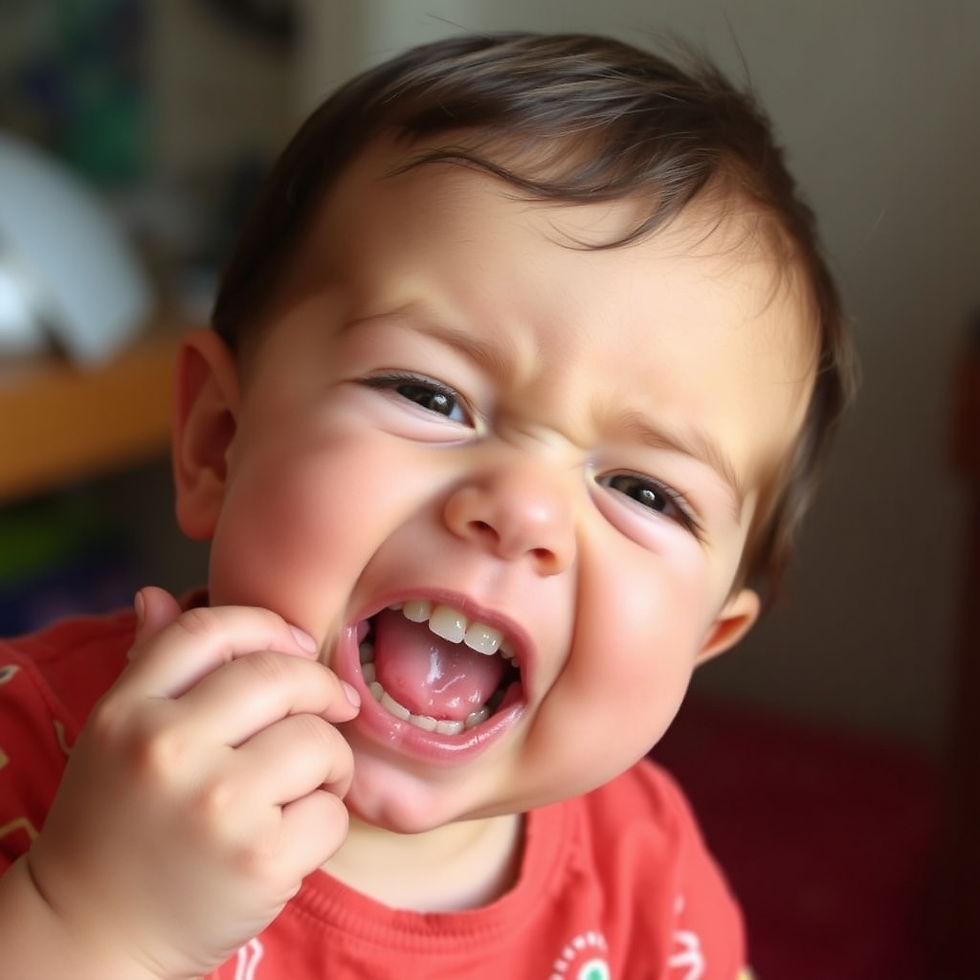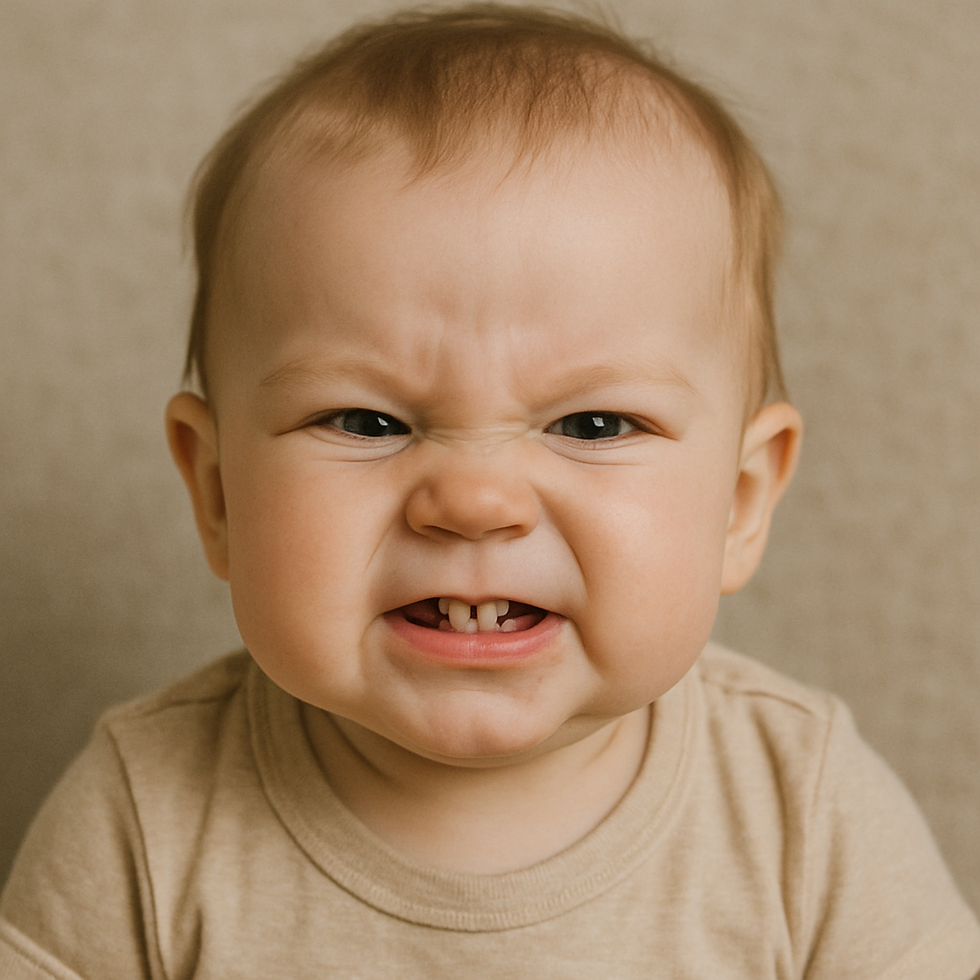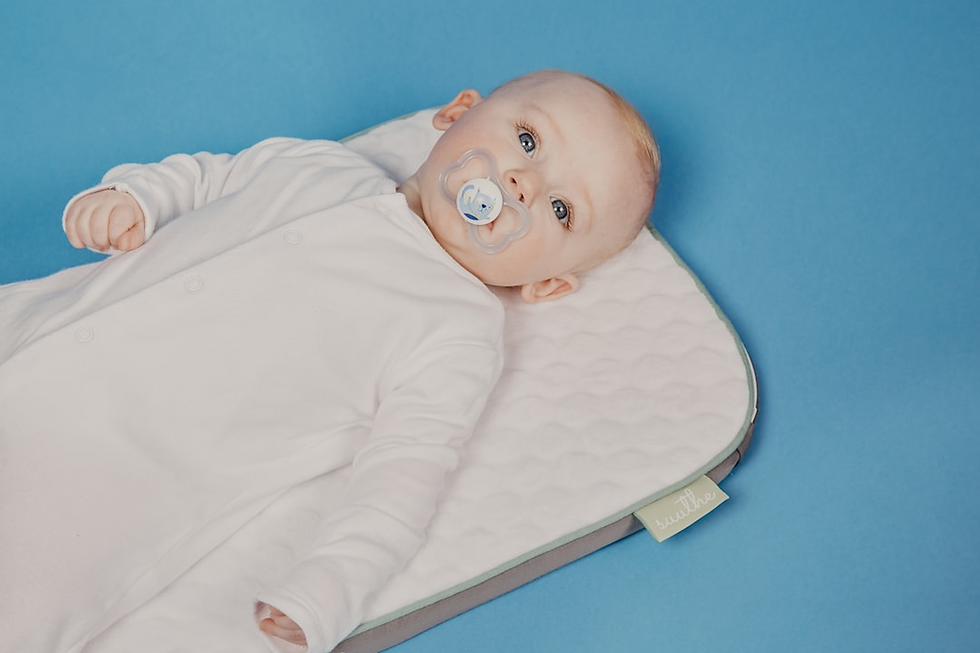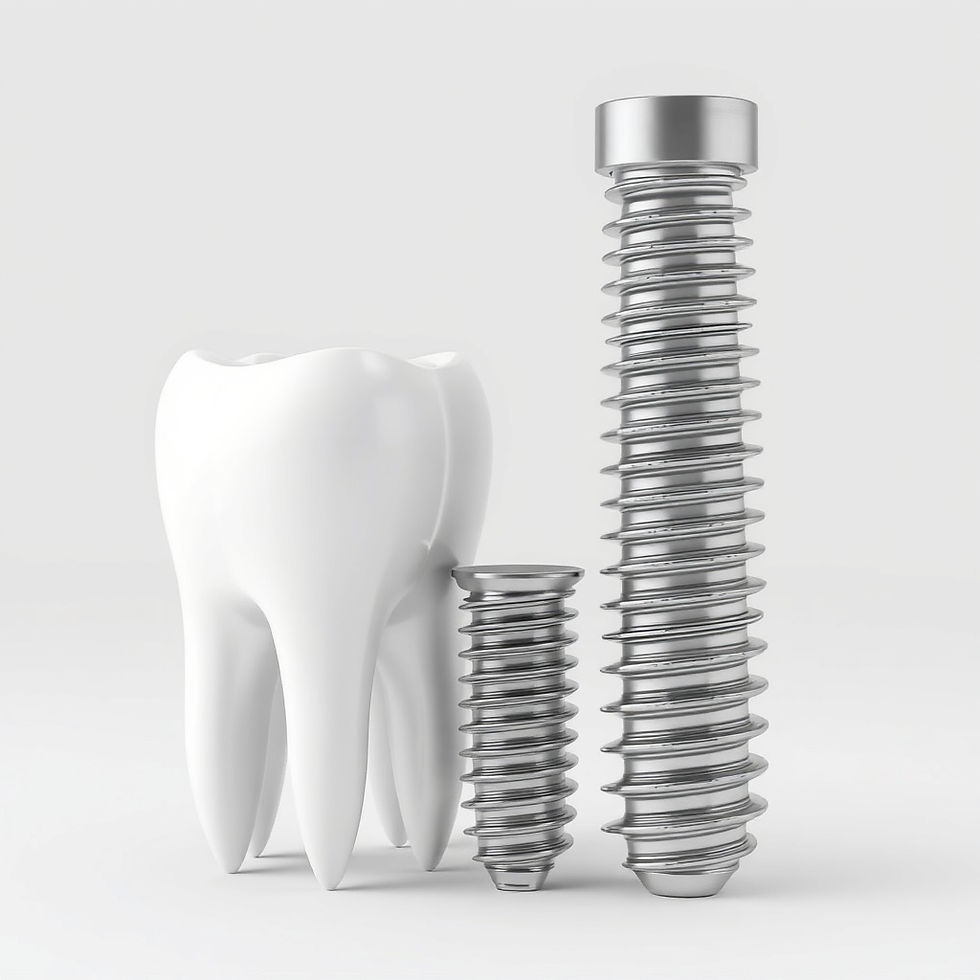Baby Grinding Teeth
- plurefy com
- Aug 19, 2025
- 6 min read
Updated: Sep 2, 2025

As a parent, it's natural to be concerned when you notice any unusual behavior in your baby. One such behavior that often catches parents off guard is baby grinding teeth, also known as bruxism in infants. This article delves into the reasons behind infant bruxism, its implications, and what steps you can take to manage it effectively.
Understanding Infant Bruxism
Infant bruxism is a phenomenon that can puzzle many parents, especially those witnessing it for the first time. Below, we explore what bruxism is, its causes, and why it happens in infants.
What is Bruxism?

Bruxism refers to the involuntary grinding or clenching of teeth. While it's more commonly associated with adults, babies can also exhibit this behavior. Infant bruxism typically occurs during sleep, but it can also happen when the baby is awake.
Understanding the mechanics behind bruxism involves recognizing that it is a habitual action, often subconscious, that results from the contraction of jaw muscles. For adults, this might be linked to stress or alignment issues, but for babies, the reasons are often different. Despite its involuntary nature, being aware of when it happens can help in addressing the root causes more effectively.
Understanding Infant Bruxism
Infant bruxism can perplex many parents, particularly those encountering it for the first time. In the following, we delve into what bruxism is, its causes, and the reasons it occurs in infants.
What is Bruxism?
Bruxism is the involuntary grinding or clenching of teeth. Although it is more often associated with adults, babies can also display this behavior. Infant bruxism usually occurs during sleep, but it can also happen when the baby is awake.
Understanding the mechanics of bruxism involves recognizing it as a habitual action, often subconscious, resulting from the contraction of jaw muscles. For adults, this might be related to stress or alignment issues, but for babies, the reasons are often different. Despite its involuntary nature, being aware of when it occurs can help in addressing the root causes more effectively.
Causes of Bruxism in Infants

Recognizing the reasons behind baby teeth grinding can help you manage the situation more effectively. Here are some common causes for why infants might grind their teeth:
Teething: As new teeth come in, babies might grind their teeth to relieve discomfort. This is a natural part of their growth, and the discomfort may lead them to try different ways to soothe it.
Exploration: Babies often explore new sensations, and teeth grinding may simply be a form of experimentation. As infants discover new abilities and sensations, grinding can be part of this exploratory behavior, similar to how they experiment with different sounds and movements.
Ear Infections: Sometimes, ear pain can cause a baby to grind their teeth, as the motion might ease discomfort. This grinding can serve as a soothing mechanism, providing temporary relief from the irritation caused by ear infections.
Misalignment: If a baby's upper and lower teeth are not properly aligned, this could lead to bruxism. Dental development varies among infants, and misalignment can unintentionally prompt grinding as their teeth naturally adjust.
Stress or Anxiety: Surprisingly, babies can experience stress or anxiety, which can manifest as teeth grinding. Changes in environment, routine, or emotional stressors can trigger this response in infants.
Recognizing the Signs of Infant Bruxism
Detecting bruxism in infants can be difficult, particularly if you're not familiar with the symptoms. Here, we explain how to identify the signs so you can take the necessary steps.
Audible Grinding
One of the most noticeable indicators of bruxism in infants is the sound. The grinding noise can be quite distinct, especially when the baby is asleep. Parents might first become aware of this sound during nighttime routines or naps, as the unique noise can be unsettling. It's crucial to understand that while the sound might seem alarming, it doesn't always signify a serious issue. However, being aware of it enables you to monitor the situation more closely.
Wear and Tear on Teeth
Over time, continuous grinding can cause wear and tear on a baby's teeth. This can result in changes to the shape of the teeth or even sensitivity problems. Checking your baby's teeth for signs of wear can offer insight into the severity of the bruxism. This wear can appear as flattening or chipping of the teeth, which might need professional assessment. Regular dental visits can help in detecting any early signs of wear before they become significant issues.
Discomfort or Pain
If your baby is experiencing discomfort due to bruxism, they may exhibit signs of irritability or have trouble sleeping. Understanding your baby's behavior is essential. If they seem unusually fussy or have difficulty settling down for sleep, bruxism might be a contributing factor. Observing these behavioral changes, along with physical signs, can provide a more complete understanding of your baby's experience.
Implications of Bruxism in Babies
Although infant bruxism is usually harmless, it's important to consider the potential consequences if it continues. Here, we examine what bruxism might mean for your baby's health and development.
Dental Concerns
While occasional grinding is typically not worrisome, frequent grinding can lead to dental problems. This includes tooth wear, which may require dental intervention if it becomes severe.
Dental health is a crucial part of your baby's overall well-being. Persistent bruxism can lead to enamel erosion, making teeth more vulnerable to cavities and sensitivity. Early consultation with a pediatric dentist can help reduce these risks and ensure your baby's teeth develop healthily.
Sleep Disturbances
Bruxism can disrupt a baby's sleep quality, causing restlessness and fatigue. Since sleep is vital for a baby's development, addressing any disturbances is important.
Quality sleep is essential for cognitive and physical development in infants. Bruxism-related sleep disruptions can affect a baby's growth and daily mood. Understanding and addressing these disturbances can significantly improve their overall sleep quality and, consequently, their developmental progress.
Developmental Impact
Though uncommon, severe bruxism could potentially affect jaw development if not addressed. It's important to monitor the behavior and consult a healthcare professional if you have concerns.
Jaw development plays a critical role in overall facial growth and function. In cases of severe bruxism, the constant pressure from grinding can influence jaw alignment and development. Monitoring your baby's progress and seeking advice from healthcare professionals ensures that potential issues are addressed early.
Managing Baby Grinding Teeth

by Alex Bodini (https://unsplash.com/@suuthe)
Addressing infant bruxism requires a mix of home care and professional advice. Here, we explore effective methods to assist your baby.
Home Remedies
Teething Toys: Offering your baby teething toys can alleviate discomfort and lessen the urge to grind. These toys are crafted to massage the gums and provide relief, which is particularly soothing during teething periods.
Massage: Gently massaging your baby's gums with a clean finger can offer relief and diminish grinding. This simple, calming action can help relax the jaw muscles and provide comfort, making it an effective home solution.
Comfort and Reassurance: Ensuring your baby feels secure and comfortable can help reduce stress-related grinding. Establishing a soothing bedtime routine and offering emotional support can significantly lessen anxiety-driven bruxism.
When to Seek Professional Help
If your baby's bruxism continues or worsens, it might be time to consult a pediatric dentist or your pediatrician. They can determine if there are underlying issues that need to be addressed.
Professional evaluations are essential if home remedies do not alleviate the grinding. Healthcare providers can offer personalized advice and treatments, taking into account the specific needs of your baby. They can also rule out other medical conditions that might be contributing to the bruxism.
Monitoring and Follow-Up
Track when and how frequently your baby grinds their teeth. This information can be crucial for healthcare professionals in diagnosing and addressing the issue.
Keeping a record of your observations provides valuable data for understanding patterns and triggers. This information can help healthcare providers create a comprehensive treatment plan tailored to your baby's specific needs. Regular follow-ups ensure that any interventions are effective and adjusted as necessary.
Conclusion
While baby teeth grinding is often harmless, it can be a concern for parents. Understanding the causes and implications of infant bruxism is essential for effective management. Remember, in most cases, this behavior is temporary and resolves as the baby grows. However, if you have any concerns, seeking professional advice is always a wise step to ensure your baby's health and well-being. By staying informed and proactive, you can navigate this phase with confidence, ensuring your baby remains healthy and comfortable as they continue to grow and develop.










Comments